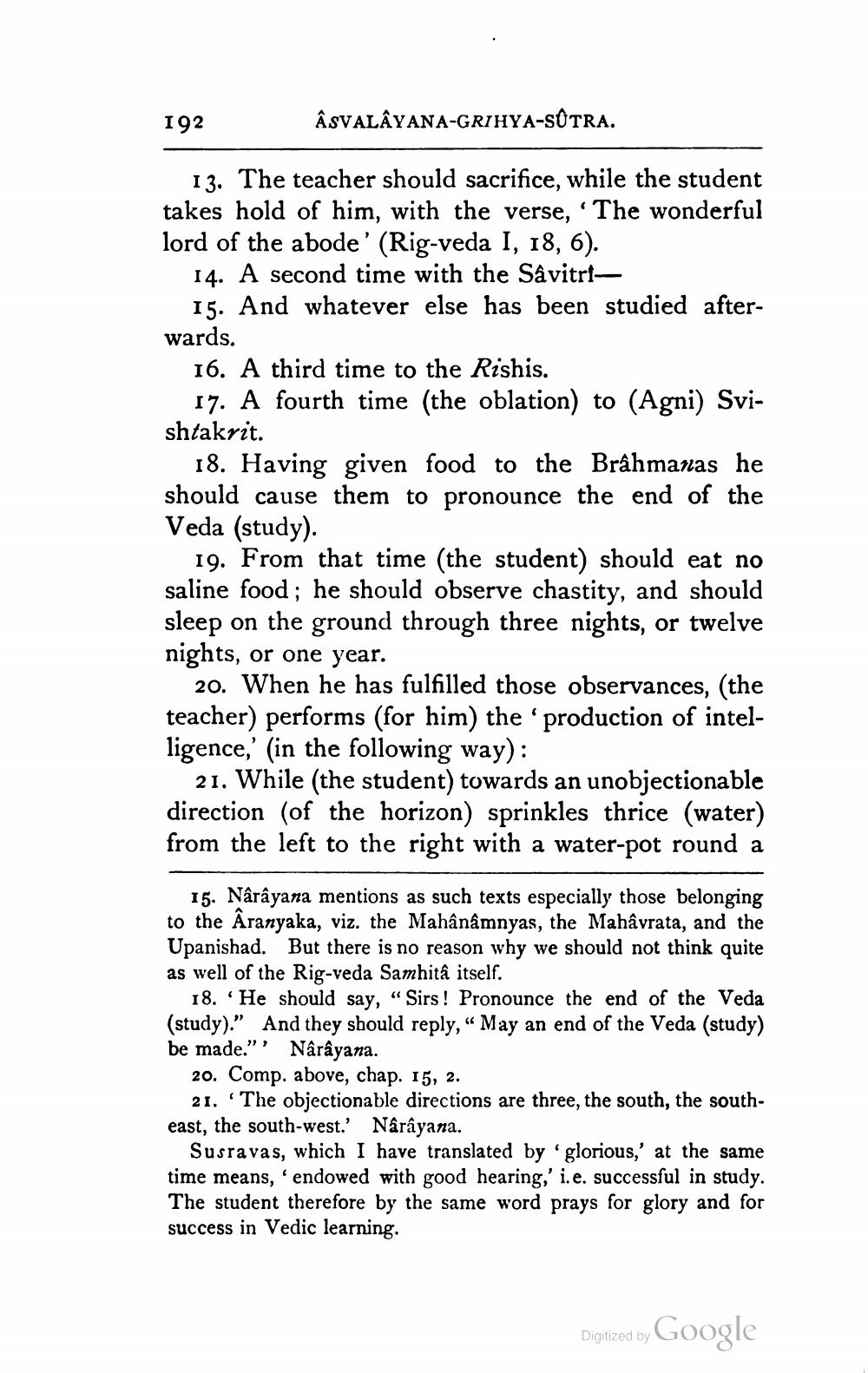________________
192
ASVALAYANA-GRIHYA-SUTRA.
13. The teacher should sacrifice, while the student takes hold of him, with the verse, 'The wonderful lord of the abode' (Rig-veda I, 18, 6).
14. A second time with the Sâvitri
15. And whatever else has been studied afterwards.
16. A third time to the Rishis.
17. A fourth time (the oblation) to (Agni) Svishtakrit.
18. Having given food to the Brahmanas he should cause them to pronounce the end of the Veda (study).
19. From that time (the student) should eat no saline food; he should observe chastity, and should sleep on the ground through three nights, or twelve nights, or one year.
20. When he has fulfilled those observances, (the teacher) performs (for him) the 'production of intelligence,' (in the following way):
21. While (the student) towards an unobjectionable direction (of the horizon) sprinkles thrice (water) from the left to the right with a water-pot round a
15. Nârâyana mentions as such texts especially those belonging to the Aranyaka, viz. the Mahânâmnyas, the Mahâvrata, and the Upanishad. But there is no reason why we should not think quite as well of the Rig-veda Samhitâ itself.
18. He should say, "Sirs! Pronounce the end of the Veda (study)." And they should reply," May an end of the Veda (study) be made." Nârâyana.
20. Comp. above, chap. 15, 2.
21. The objectionable directions are three, the south, the southeast, the south-west.' Nârâyana.
Susravas, which I have translated by 'glorious,' at the same time means, endowed with good hearing,' i. e. successful in study. The student therefore by the same word prays for glory and for success in Vedic learning.
Digitized by Google




